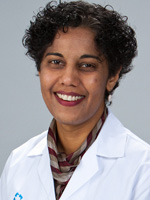 I saw two young men both in their early 30s with new diagnosis of testicular cancer earlier this year. One of them noticed a painless lump in one of his testicles while the other reported a dull ache in his lower abdomen. They both sought attention within few days of experiencing symptoms and have since completed treatments for the cancer and are likely cured.
I saw two young men both in their early 30s with new diagnosis of testicular cancer earlier this year. One of them noticed a painless lump in one of his testicles while the other reported a dull ache in his lower abdomen. They both sought attention within few days of experiencing symptoms and have since completed treatments for the cancer and are likely cured.
Fortunately, testicular cancer is often curable. It is more common in young and middle aged men and can present as heaviness or lump in a testicle or sometimes as pain in lower abdomen or groin. If it has spread to other organs such as lungs it can cause cough or shortness of breath.
While we don’t know why some men develop testicular cancer, there are some specific risk factors that can increase chances of developing testicular cancer. These include smoking, HIV infection, personal or family history of testicular cancer. Also men who have a testicle still in the abdomen at birth can develop testicular cancer.
Both young men above were tested initially with a testicular ultrasound which confirmed presence of an abnormal growth in the testis suspicious for cancer. They also had some abnormalities detected in blood tests which were suspicious for testicular cancer. A whole body scan was then performed in both individuals to see if the cancer had spread to other parts of the body. These are the tests usually done in men suspected to have testicular cancer.
Treatment of testicular cancer primarily involves removing the affected testis. Need for additional treatment depends on extent of spread of the cancer and may involve more surgery, chemotherapy and/or radiation treatments. After completion of treatments, individuals are closely monitored for several years by periodic physical examinations, blood tests and scans. Some patients at low risk of recurrence may just be monitored very closely without receiving further treatment after surgery. I always stress the importance of follow up to our cancer patients so that we can detect any recurrences early and treat them; most recurrences in testicular cancer are curable.
An important question raised by my patients with testicular cancer is if removing a testicle affects sexual activity or ability to have children. Fortunately, most men are able to live a normal sexual life and many are able to father children despite removal of a testicle. However, in some men the sperm count may be low and sperm banking is often recommended especially if chemotherapy treatments are planned.
April is Testicular Cancer Awareness Month. It is important to perform testicular self exam and let your doctors know immediately if you are experiencing any changes in the testicle or feel any lumps or any other concerning symptoms. This is a curable cancer and early detection improves chances of cure.
Dr. Priya Rudolph, a graduate from Yale University is an experienced hematologist/oncologist with Georgia Cancer Specialists affiliated with Northside Hospital Cancer Institute (www.gacancer.com). She has offices in Athens (ph 706-369-4478) and in Greensboro (Ph 706 454-0159). Georgia Cancer Specialists is a top 10 privately owned practice and is a national leader in advanced cancer treatment and research. Its physicians and staff offer many clinical trials and state of the art personalized care to each individual patient.